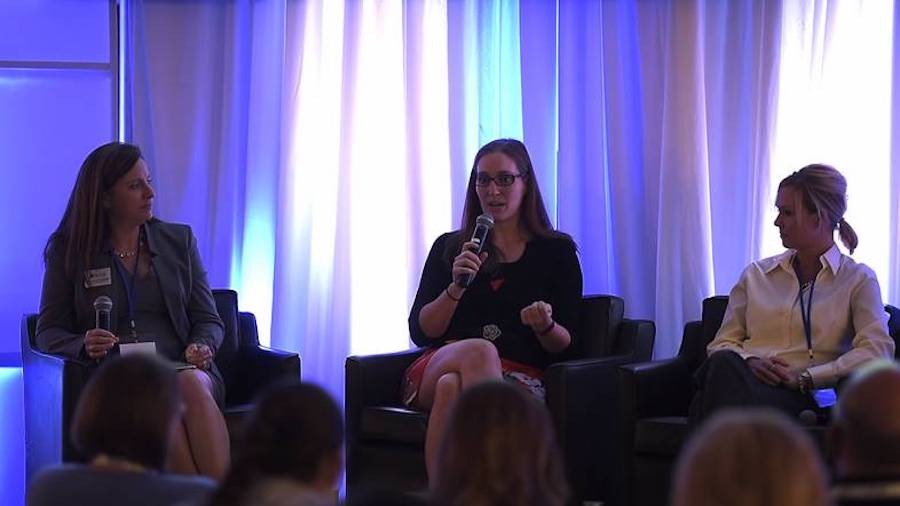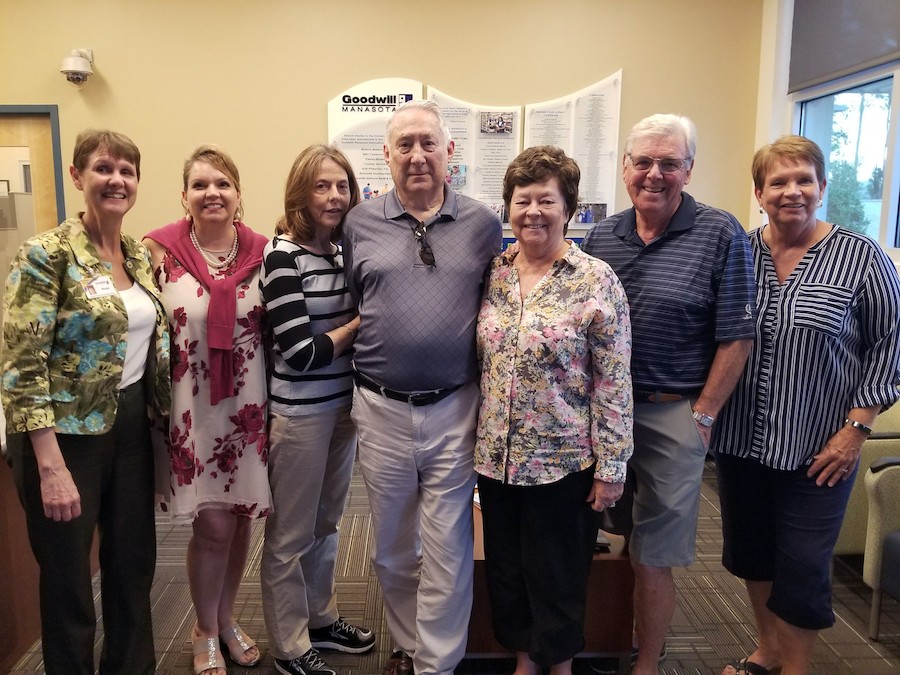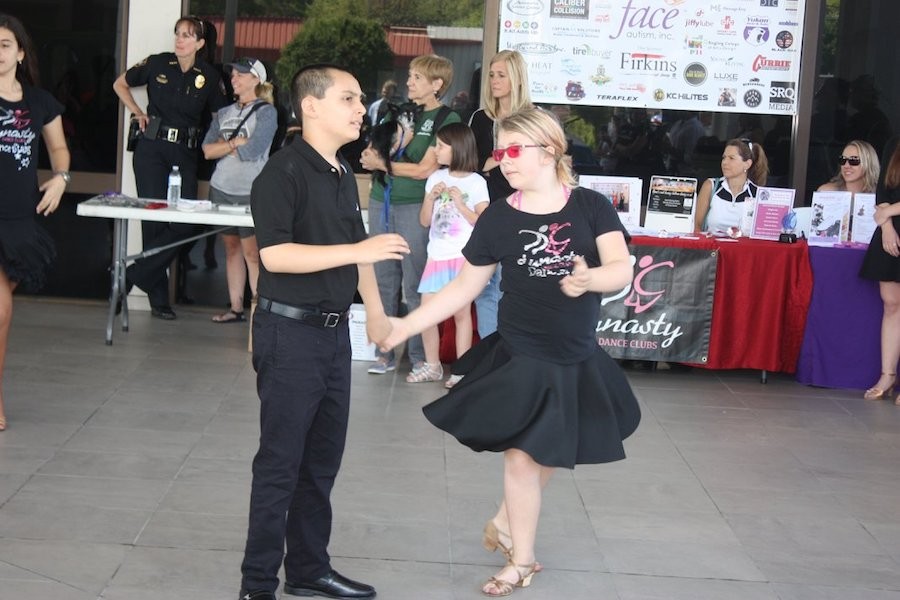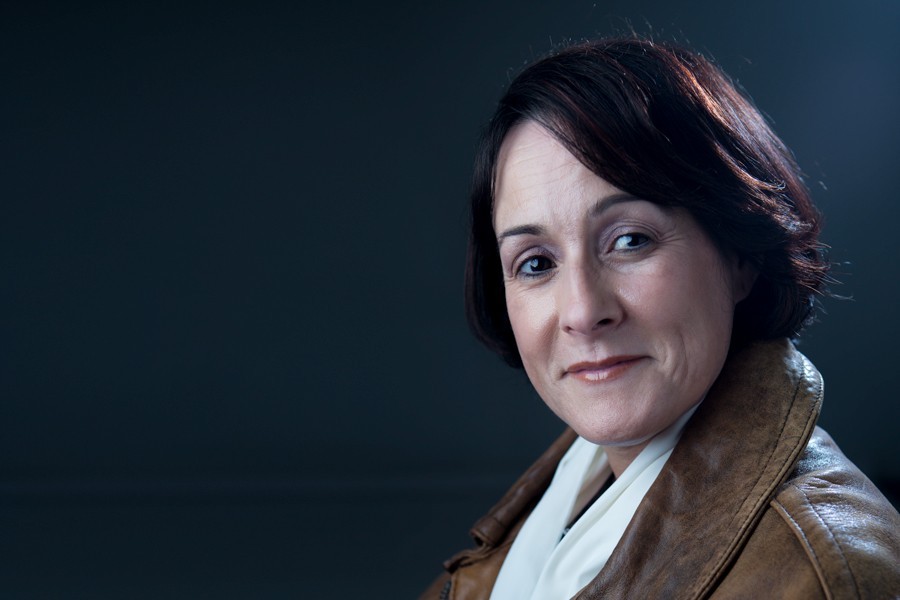SRQ DAILY Mar 24, 2018

"Amid this rising tide of opioid overdoses, the balance of the opioid prescription issue lies between safeguarding the practice of responsibly prescribing pain management treatments and not harming the very patients they purport to protect."

Outcomes of the races already conducted on the Gulf Coast in 2018 resulted from the spending of hundreds thousands of dollars—only to be determined by tens of thousands of voters. However pleased individuals may or may not be with the outcomes of the races, it inevitably raises the question of how well you measure the will of the electorate when so few voters cast ballots at all.
For Dan DeLeo, who ran the Citizens for Better Schools committee in Sarasota during a successful campaign to renew a tax here, the format of a special election offers a valuable tool in promoting a message—focus. “For that 90-day period, we shine a really bright spotlight on education and investing in teachers and children,” he says. So every four years, an election has taken place in March on a tax referendum, and the measure doesn’t compete for headlines with presidential, gubernatorial or senatorial campaigns.
There’s selfish reasons too. Anyone who lives in a swing state and owns a television set knows how quickly voters burn out on politics. Robust advertising becomes more expensive—and more necessary—during a regular even-year election cycle. And whether anyone wants to talk about it, putting a question in front of voters—particularly one about getting taxed—becomes a trickier proposition if a low-information voter gets faced with the question for the first time when they look at their ballot on election day.
So here we are. Sarasota voters this week approved a school tax with 78.63 voters in favor. Manatee voted to put a new tax in place with just 51.39 percent of the vote. But a low number of voters in each county, 20.45 percent of eligible in Sarasota and 23.99 percent in Manatee, participated in these critical elections at all.
And that comes a month after a much watched special election in state House District 72, the Sarasota area. There, Democrat Margaret Good pulled an impressive win in a seat held four seven years by Republicans, winning 52.18 percent of the vote—at least of the 36.1 percent of district voters who cast ballots. Of course, low turnout isn’t Good’s fault. No one expected the past office-holder to resign her seat and open this election up. Supporters of the school referendum, meanwhile, advocate to hold that vote in March.
Most voters, though, don’t pay so close attention to news to know these races will happen. One might say that means they shouldn’t vote in them anyway. Maybe we’re better off with low-info voters sidelining themselves. But it can’t help but feel undemocratic. After all, voters in Sarasota and Manatee will be taxed courtesy these referenda whether they voted or not. And Good now represents constituents regardless of whether they know it.
For political junkies like myself, it’s hard to imagine missing an election where hundreds of thousands get spent on messaging or where every political pundit in the country is watching the results to get a hint of what mid-terms will bring. But people have lives. Sarasota and Manatee schools went on spring break days after this election was held, so the parents who have a vested stake in the referenda may well have been more focused on vacation planning.
And these elections are not without cost. While the county election supervisors never complain about doing these races in Sarasota or Manatee, it takes poll workers, a printing of ballots and the wear on equipment to have elections throughout the year at odd times. But that’s just the price of keeping turnout low.
Jacob Ogles is contributing senior editor for SRQ Media Group. 


Ringling College of Art and Design one week ago today held its 22nd annual Evening at the Avant-Garde. This event is a celebration held on our campus dedicated to raising scholarship funds for our amazing students. This year’s theme—“In Color”—inspired so many from this community to don their boldest and brightest shades, and show up in full-spectrum force to share their generosity and enjoy the kaleidoscope of creativity that is Ringling College. Imagine, nearly over 400 guests in every hue, tint, and tone imaginable. It was quite a spectacle!
While fun was had by all, the most important part of the evening is celebrating our Avant-Garde scholarship finalists and winner, as well as raising funds for one of the most important scholarships we offer at the College, entitled “Crossing the Finish Line”.
So what is meant by this Crossing the Finish Line and why is it is important?
Let me explain. My most difficult day as president of Ringling College is when an upper class student—a junior or senior—comes into my office to tell me they have loved their time at the College but have to say good-bye because they must drop out. It’s not because of grades. It’s because their family’s financial situation has changed. It may be due to an illness in the family or even the death of a parent, a divorce, a natural disaster (like a hurricane) or a parent’s lay-off from a job. In none of these instances is it the students’ fault, but because of them, it makes it impossible for them to afford the cost of continuing their education and completing the degree to which they have already dedicated so much time and energy. For me, this is an absolutely devastating moment.
And this moment is the reason the “Crossing the Finish Line” scholarship fund was put in place. The idea is to support our students in this time of crucial need with the financial resources they need to finish their degree. I can assure you it is one of the absolute greatest gifts we can offer here at Ringling.
That’s in part because what we do at Ringling College is truly transformative for both the students and our community, and the greater society. By giving our students the very best art and design education in the world, we are nurturing and developing the creative leaders of tomorrow.
Our students are a true inspiration. So too are all the faculty, staff, other students, community leaders and benefactors who support them with their contributions to their education and personal and professional development. And our gratitude runs so very deep for those who gave so generously during the Avant-Garde paddle raise, as we raised over $260,000 [LT1] in scholarship funds needed for students to “cross the finish line.”
Ringling College continues to stride down the pathway to preeminence—in art and design education to be sure, but also in providing the financial resources to the incredibly talented and community-oriented students who otherwise could not achieve the creative careers of their dreams today in order to make a better world for tomorrow.
Sometimes, we just need a little help from our friends to see their dreams through and help them finish their education.
Dr. Larry Thompson is president of Ringling College of Art and Design. 

Events like the tragedy in Parkland make us evaluate our respective roles and consider what we can do to ensure such a thing never happens again. Some have the power to create legislation or local policies, others can simply have a conversation with their children.
At the State College of Florida, Manatee-Sarasota, we are motivated to find a meaningful way to contribute to the safety of our community. After assessing our programs and capabilities, we asked the question: “What can the College do to improve access to mental health care in our community and its schools?”
Manatee County has been designated as a mental health care provider shortage area since 2016. Across our state and region, there is a lack of resources and providers for mental health treatment. Our region also has rural areas which are underserved for both general practice healthcare and mental health care.
Telehealth presents an opportunity to bring healthcare and mental health assessment and treatment to areas that lack access to clinics and providers. Telehealth, or telemedicine, is the interaction between a patient and doctor or specialist through video teleconference on a computer, tablet and smart phone. Telehealth provides an accessible starting point when patients and providers need quick and reliable access to care. Once an assessment is made through telehealth, the provider can determine if the patient needs face-to-face care. Telehealth coverage is increasingly being included in insurance plans.
Evidence is emerging that telehealth is an effective approach for assisting with the management of individuals with acute and chronic mental health conditions, including vulnerable children and adults who may have difficulty accessing routine services. It is also being used with positive outcomes in elementary, middle and high schools for mental health screening, treatment and education, as well as to help support children and school nurses with special care needs.
Florida’s Telehealth Advisory Council reports that “many providers reported a lack of knowledge about telehealth services and indicated interest in gaining access to evidence-based practices, educational resources, and training opportunities associated with telehealth.” Telehealth training certificate programs are urgently needed to effectively educate our nursing and health professions students and for Florida’s healthcare providers.
To meet that need, SCF submitted a proposal to the Florida Job Growth Grant Fund for a telehealth certificate program for the region’s nursing and health professions students and healthcare providers. If the grant is approved and funded we will work in collaboration with our regional clinical agencies, volunteer organizations and regional healthcare system leadership and staff to help improve access to mental health care to address the region’s current mental health care provider shortage, and provide the skills needed in the community to deliver accessible, evidence-based mental health care.
If the state choses to fund our $850,000 request, we can create and deliver the telehealth certificate program, an extremely economical option with wide-reaching implications for our region. Educating our healthcare providers on uses of telehealth could extend health care into underserved areas of Manatee and Sarasota Counties and increase mental health assessment and treatment capabilities for our schools.
With regional input and support from the state, SCF is dedicated to making our service area a better place to live and work. We believe that by working together on these types of collaborative initiatives, we can tackle the tough issues in a meaningful and purposeful way.
Dr. Carol Probstfeld is president of State College of Florida, Manatee-Sarasota. 

Florida has an opioid prescription crisis. The epidemic begins with pain, continues through the pen of redundant prescribers, and tears its way through our cities, neighborhoods and families.
According to a recent study, opioids claimed the lives of approximately 16 Florida residents per day in 2016, mostly from legally prescribed sources. This number is staggering on its own, but even more so when considering that there were 35 percent more deaths from opioids than the year before. While prescription abuses are accountable for the majority of overdoses, the spread of opioids through sale, theft, and sharing with others has added to the carnage.
Amid this rising tide of opioid overdoses, the balance of the opioid prescription issue lies between safeguarding the practice of responsibly prescribing pain management treatments and not harming the very patients they purport to protect. This balance has opened the eyes of Florida legislators.
The first wave of prescription reform was to shut down “pill mill” practices. The second wave is to educate physicians and patients on responsible prescribing. In data published by Medicare, 95 percent of prescription opioids are given by specialists other than pain management or interventional medicine physicians—namely primary doctors, surgeons and dentists. A significant element of monitoring current responsible dissemination of controlled substances by physicians relates to the MME (Morphine Milligram Equivalent) per day for their practices. Lowering effective milligram dosages proactively manages the risk of instances of addiction and overdose.
Enter Florida’s Bill on Opioids.
On Monday, March 19, Gov. Rick Scott signed HB 21 at the Manatee County Sheriff’s Office, highlighting more than $65 million to combat opioid abuse. HB 21 was drafted to help regulate acute and chronic pain prescriptions of opioids by imposing three main components:
- Opioid prescriptions written to treat acute pain will be limited to a three- to seven-day dose. Note that there has been a request made to amend this regulation to extend maximum dosage to 10 days.
- Mandatory physician review of the E-FORCSE (Electronic Florida Online Reporting of Controlled Substances Evaluation) database to determine a patient’s current prescribed medications prior to writing new prescriptions for controlled substances.
- Authorized physicians are required to complete a board-approved, two-hour continuing education course on prescribing controlled substances.
The bill also increases penalties for healthcare practitioners that provide medically unnecessary controlled substances to patients by fraud, misrepresentation or other deception. It also implements additional reforms to fight unlicensed pain management clinics. Prescription limits for pain related to cancer, terminal illness, palliative care, and serious traumatic injury are exempt from the bill.
As the director of the Ramos Center, one of the largest and most effective interventional medicine practices in the state of Florida, I have dedicated my career to ensuring a higher standard of responsibility. That’s why for over a decade, my team has actively lobbied alongside local and state law enforcement and government organizations and worked with nonprofit organizations to push for legislation to address the opioid issue. In fact, our practice has operated for nearly 20 years under the regulations that HB 21 will enact—with even more precautions in place.
With two offices serving Sarasota and Manatee counties, my team consists of three physicians, a physical therapist, a clinical hypnotherapist, and a staff of 60-plus, including physician assistants, nurse practitioners and other health care specialists. We are among only a few interventional medicine practices in the region with a licensed mental health counselor on site.
We believe the approach to pain medication management should always be conservative and focused on the many other modalities and interventions available to lessen pain intensity. From the very start of our interaction with new patients, we engage a screening process that includes an in-depth physician review and risk assessment in Florida’s Prescription Drug Monitoring Program – or E-FORCSE—and a mental health review. Once a patient is under our care, we administer drug tests a minimum of twice a year.
Nearly 25 percent of referred patients are not accepted into our practice, largely due to excessive opioid prescriptions. Before we can treat these cases, we require rehabilitation or detox. We have the best overall patient outcomes, with a “last resort” mentality for opioid initiation, allowing our practice to report an industry-low number of patients who are prescribed opioids. Of our 10,000-plus active patients, only 18 percent are prescribed opioids for pain management, 97 percent are insured—contrasting opioid-only clinics with a cash-based model—and only 1 percent are under 30 years old.
We often prescribe a new patient with just three days’ worth of medication, rather than a full month, so we can best evaluate effectiveness and risk assessment, which is what the bill is asking ALL opioid prescribers to begin doing. Conversely, 82 percent of our patients are treated with non-opioid alternatives, such as a comprehensive range of leading-edge technology interventional modalities, physical therapy or behavioral management.
When HB 21 is enacted on July 1, the Ramos Center will be there to guide you and continue to be your source of knowledge regarding current and best practices models in opioid management. Furthermore, we will continue to hold and organize local seminars, and are committed to educating the medical community and public in general regarding the new legislation, which will affect every physician’s current practice in reference to opioids. We understand these changes will be difficult to implement and inconvenient for both physicians and patients alike. However, the challenges we face are worth the countless lives we can save.


The Orioles are teaming up with global and local charities to feed the hungry with two events today at Ed Smith Stadium. Scores of volunteers organized by Catholic Relief Services (CRS) will help package meals for vulnerable people in West Africa on from 9:00am to 1:30pm. This evening, the Orioles will also host the eighth annual All Faiths Food Drive. Fans attending the 6:05pm game against the Minnesota Twins are encouraged to bring non-perishable food items and/or monetary donations to benefit the All Faiths Food Bank. Volunteers will collect all donations at the gates of the ballpark. Since 2011, more than 6,000 pounds of food and nearly $7,500 in cash donations have been collected at the yearly food drive to help people in need in the Sarasota community. 

Registration is open for the second annual State of Talent Conference presented by CareerSource Suncoast on May 24 at the new Westin Sarasota. This full-day conference welcomes human resource professionals, business owners and community leaders to better understand the state of talent in our community. This year’s conference has concurrent tracks, including a talent track focused on individual employers’ needs to develop talent and a leadership track designed to look at community wide initiatives to enhance economic development, workforce and education. A new addition to the agenda this year is the Innovation in Workforce Luncheon presented by Ringling College of Art + Design, which will recognize regional employers’ innovative approaches for recruiting, training and retaining talent on the Suncoast. Registration is $229 and includes breakfast, workshops, Innovation in Workforce Luncheon, post-conference networking event and 6 CE credits. Tickets for the Innovation in Workforce Luncheon may be purchased separately for $60 if you are unable to attend the conference. 

Goodwill Manasota and the Children’s Guardian Fund are partnering on a new initiative, “Celebrate You” to brighten the birthdays of children in foster care. Thanks to generous donors John and Robin Sullivan and Maureen and Jack Higgins, the program will provide children in foster care with gift certificates of $35 to Goodwill retail stores to purchase any items they choose on their birthday. Many children in foster care come from neglectful, unstable or even abusive environments and may never have had the opportunity to celebrate a birthday. Funds spent on the gift cards will support Goodwill’s efforts to provide job skills training and create jobs for individuals with disabilities or other barriers to employment. 

Last Saturday, The Circus Arts Conservatory, The Junior League of Sarasota, The Heart Gallery of Sarasota and The Children’s Guardian Fund partnered together to host 60 foster children and their foster families for a special presentation of the Sailor Circus Academy. The purpose of the event was to provide a light-hearted atmosphere in which foster children and their foster families were able to enjoy dinner and a fun-filled show, many attending the circus for the first time. The Sarasota-Bradenton area has a shocking 1,200+ kids in foster care, an explosion attributed to the opioid crisis. For one evening, children and foster families were able to take a break, laugh and be captivated by the joy of the circus arts. This wonderful opportunity was offered at no cost to children in foster care and foster families. This collaboration represents the shared commitment to the well being of our community’s foster youth, ultimately helping them reunify with their family of origin or find their forever families. 

Selah Freedom’s new partnership with Delta Airlines is flying sex trafficking survivors home for care and healing to any one of their peaceful safe houses. Delta’s generous gift of $10,000 worth of flights makes this happen and sets the nonprofit’s Prevention Team in motion throughout the U.S. to educate at-risk-teens in the cities that need it most. Corporate sponsorships dramatically change lives. The Sky’s the limit. Thanks Delta! 

On March 11, Face Autism hosted their inaugural Jeepin’ for Face Autism event for local families with autism. Firkins Chrysler Jeep Dodge Ram teamed up with the Sarasota Jeep Club for the event and over 52+ local and National companies provided support. The event included live music from the Mystic River Band, dance routines by Dynasty Dance Clubs and the Dynasty Stars (special needs dance group). This free event helped raise close to $7,000 for the organization from the support of the over 200+ attendees and 100+ Jeep Club members who donated to the cause. Firkins Chrysler Jeep Dodge Ram and Face Autism, Inc. have both agreed to make this an annual event for the organization. 

In pursuit of its strategic plan to grow programmatic infrastructure, strong partnerships and funding support, CareerEdge Funders Collaborative will partner with the Greater Sarasota Chamber of Commerce. The change comes in response to continued growth, which requires a sharper focus on economic and talent development for the region. As part of the transition, CareerEdge will move its operational functions by early summer from United Way Suncoast, its home for the past two years, to the Greater Sarasota Chamber of Commerce. This operational transition provides closer alignment to employers, enabling CareerEdge to support the workforce needs of local companies. Gulf Coast Community Foundation will continue in its role as fiscal agent, which it has done since the inception of CareerEdge in 2010. In addition, CareerEdge is pursuing incorporation as a 501c3 to grow new avenues of revenue. Mireya Eavey has resigned as Sarasota Area President for United Way Suncoast to become the Chief Workforce Strategist at the Chamber. In this role, she will continue to lead CareerEdge’s mission to provide an exceptional labor force to the region’s growing industries. 

SRQ DAILY is produced by SRQ | The Magazine. Note: The views and opinions expressed in the Saturday Perspectives Edition and in the Letters department of SRQ DAILY are those of the author(s) and do not imply endorsement by SRQ Media. Senior Editor Jacob Ogles edits the Saturday Perspective Edition, Letters and Guest Contributor columns.In the CocoTele department, SRQ DAILY is providing excerpts from news releases as a public service. Reference to any specific product or entity does not constitute an endorsement or recommendation by SRQ DAILY. The views expressed by individuals are their own and their appearance in this section does not imply an endorsement of them or any entity they represent. For rates on SRQ DAILY banner advertising and sponsored content opportunities, please contact Ashley Ryan Cannon at 941-365-7702 x211 or via email |
Powered by Sarasota Web Design | Unsubscribe












